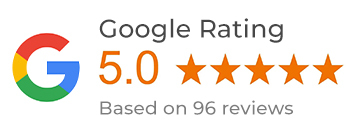Taking title of your home makes you the legal owner of the property and establishes a set of property owner rights, including the right of possession, control, enjoyment, disposition, and exclusion. In less legal terms, these rights give you full authority to live in the home, choose the color of the paint, decide what flowers and other adornments to add to the landscape, determine the option to sell, rent, or transfer ownership, and choose who can and cannot enter the premises.
A clear title is ideal because it leaves no question about ownership. However, things come up and can unfortunately lead to a cloudy title. As the name implies, ownership becomes cloudy when a property is not legally transferred, such as through a will or past financial obligations show up as a lien on the property.
Cloudy title issues can limit property tax benefits, disaster recovery assistance, and prevent you from improving or selling the property. Fortunately, there are options for resolving these issues. Because of the complexity of clearing a title, you may find professional legal guidance helpful in navigating the process.
Common Title Problems Property Owners May Run Into
The following explains some of the most common title issues and how you can resolve them.
Missing or Unknown Heirs
Who owns what can get cloudy if a property owner passes away and their heirs were missing or unknown. It is possible for an heir to arrive at your property and claim it as rightfully theirs. This situation can become a lengthy process. Determining actual heirship in a court of law is generally the best option. An undiscovered will can pose the same issue.
Liens
Unpaid items such as utility bills, taxes, back due child support, or debt to a business can show up on the title of a home and assert some legal claim of ownership on the property. To remedy this problem, repay the debt owed or work out a payment plan for the unresolved debts.
Unknown Easements
An easement can give other people access to your property. One common easement you’re likely already familiar with is your utility company. They can access the property and measure water and electricity usage. A prescriptive easement can pose problematic if not addressed quickly. This can happen when a neighbor uses part of your property, such as a driveway, to park their car or other use. If not dealt with in a timely manner, the neighbor can take legal claim of the property, and a lawsuit becomes necessary to terminate the easement.
Incorrect Legal Description
The slightest typo in the legal description for your property can create big problems. Whether room dimensions or property boundaries, these public record mistakes can create an issue when selling your home or sitting down at closing time. You can correct errors by filing a Scrivener Affidavit for a minor error, or a Correction Deed for more substantial changes, such as a lot change.
Fix Title Issues
Although time-intensive, you can resolve and clear your property’s title, and it’s important that you do so. A title company can help research the property and let you know about any liens or other issues that can create problems. A real estate attorney can also prove helpful, especially in complicated situations, such as an unknown will or heir.



